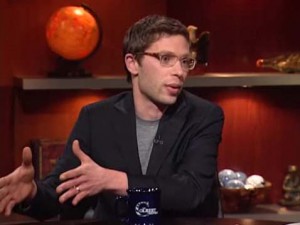
Ecological Chains Worldwide Being Damaged
Nathan
Planet Save, 18 May 2012
Subtle ecological chains worldwide are being damaged by human influence, leading to significant losses of population in different ecosystems.
One of the longest ecological chains ever found has just been discovered in the remote Palmyra Atoll, in the Pacific Ocean. This area is useful to science because there are relatively untouched ecosystems that are in close proximity to human-influenced ones.
Researchers there have now documented how something as simple as replacing native trees with non-native palms can lead to a collapse of seabird, plankton, and manta ray populations around an island.
The findings were almost accidental, as the researchers involved were there for a different study involving manta rays and their predator-prey interactions.
As they were doing the study though, they noticed that the manta rays kept returning to the coastlines of certain islands.
At the same time, a different researcher was in the area doing a study on the effects that non-native palm trees had on seabird communities and native habitats.
While interacting with each other, the overlap of the research began to become apparent.
Continue reading “Dolphin: Ecological Chains Worldwide Being Damaged”







